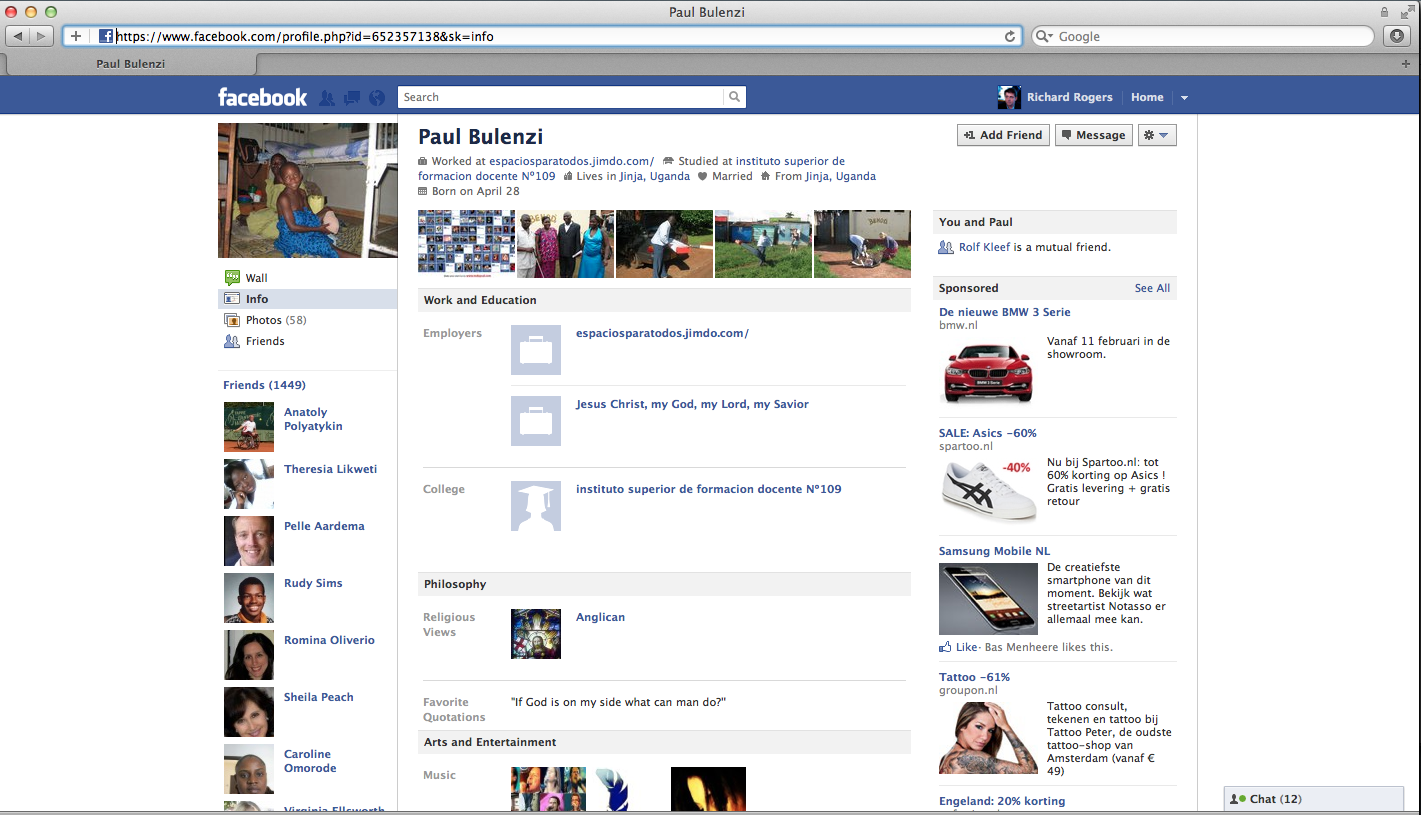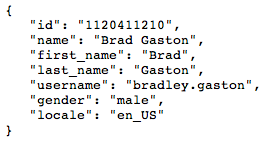You are here: Foswiki>Dmi Web>DmiWinterSchool2012ExportingFacebook (27 Jan 2012, CatalinaIorga)Edit Attach
Exporting Facebook
Team members
Catalina Iorga, Nadia Dresscher, Richard Rogers, Bernhard RiederIntroduction
This project was inspired our previous attempt to compare Facebook's screen output - or interface - with the content retrievable through the API.Findings
A) Facebook API Ethics There are three levels that negotiate between the API and the data: - Harsh restrictions built into the API (i.e. one can never pull emails of users). - Permissions granted by the user to apps that call the API. These privileges can be revoked or modified. - Privacy settings of the (friends of) the user. Friends of a user can 'protect' themselves from that user's app. B) Exploring the API in Facebook spaces Pages When we tried to capture all content available on a page (title, description, status updates, comments, likes, photos, likers, posts, links, how many people are talking about the page etc.), there was no significant difference between the screen output and the results of the API calls. The only exception, we assume, are posts that were shared from another space (user profile, group, page) on the wall of the page we were examining. Profiles By examining a group supporting a presidential candidate, for example, we found out that many of the group's members had publicly available information that is visible onscreen, but cannot be retrieved through the API. The only things that can be pulled through the API is name, gender and locale (the language used on Facebook). The API returns the exact same type of information for both public and restricted profiles. Screenshot of user profile 1 with privacy set to public Screenshot of the user profile 1 as retrieved with the API
Screenshot of the user profile 1 as retrieved with the API
 Screenshot of user profile 2 with restrictions on the information shared publicly
Screenshot of user profile 2 with restrictions on the information shared publicly
 Screenshot of user profile 2 as retrieved with the API
Screenshot of user profile 2 as retrieved with the API
 Screenshot of API return for the query of a secret group ID
Screenshot of API return for the query of a secret group ID

| I | Attachment | Action | Size | Date | Who | Comment |
|---|---|---|---|---|---|---|
| |
screenshot_api_return_for_secret_group_id_query_.png | manage | 14 K | 27 Jan 2012 - 16:05 | CatalinaIorga | |
| |
screenshot_user_profile.png | manage | 431 K | 27 Jan 2012 - 15:29 | CatalinaIorga | |
| |
screenshot_user_profile_2.png | manage | 322 K | 27 Jan 2012 - 15:43 | CatalinaIorga | |
| |
screenshot_user_profile_2_api.png | manage | 14 K | 27 Jan 2012 - 15:51 | CatalinaIorga | |
| |
screenshot_user_profile_api.png | manage | 19 K | 27 Jan 2012 - 15:39 | CatalinaIorga |
Edit | Attach | Print version | History: r2 < r1 | Backlinks | View wiki text | Edit wiki text | More topic actions
Topic revision: r1 - 27 Jan 2012, CatalinaIorga
 Copyright © by the contributing authors. All material on this collaboration platform is the property of the contributing authors.
Copyright © by the contributing authors. All material on this collaboration platform is the property of the contributing authors. Ideas, requests, problems regarding Foswiki? Send feedback


